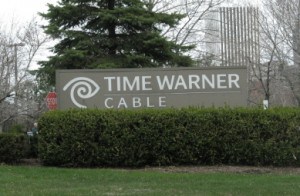 A column this week in The Post-Standard falls into the trap of believing usage caps on wired broadband service represent “fairness.”
A column this week in The Post-Standard falls into the trap of believing usage caps on wired broadband service represent “fairness.”
Al Fasoldt, who writes a technology column for the Syracuse, N.Y. newspaper, told readers they should investigate buying and/or using usage measurement tools in order to protect themselves from a surprising bill at the end of the month.
Caps can make their service fairer to all customers by blocking excessive downloads that clog the network, and those who exceed their caps can be charged a great deal extra for service. This amounts to free money for ISPs.
But there is something counterintuitive about promoting new ways to get entertainment on the Internet — by using Hulu, for example, to stream TV shows to your home computer — while telling customers they can’t use more than a certain amount of data.
[…]
What’s needed is a simple way to measure how much data you use per month. Cable providers sometimes provide a Web page that logs each customer’s transfer totals — call your ISP to find out if your plan has such a feature — but you can easily track usage yourself with data-usage software utilities.
Fasoldt assumes facts not in evidence. Simply put, there is nothing fair about usage caps, particularly on wired broadband service. Fasoldt can be partly excused for making the assumption because he lives in Syracuse, where Verizon FiOS and Time Warner Cable compete heavily for customers in the Salt City. Veterans of actual Internet Overcharging experiments, and those who live under usage caps and usage-based billing can testify about the true implications of such schemes.
They are nothing short of rationing broadband service for fatter profits.
In Rochester, where Fasoldt notes customers successfully fought off Time Warner’s experiment, customers do not have the luxury of two closely-matched competitors. They have the cable company and a telephone company that stubbornly clings to its own 5 GB usage allowance in its terms and conditions, albeit presently unenforced. Where competition is at bay, higher prices for limited service are in play.
At least Fasoldt admits it’s also about the money.
There is nothing counter-intuitive about promoting online video services and then slapping usage caps on them when you realize it’s really ALL about the money and not about “fairness.” Limiting video consumption is critical to protecting cable television packages. If you can watch it all online, why keep paying for cable-TV? With a usage cap, there are no worries about that ever happening.
As this website has repeatedly documented, consumers do not need to invest in usage measurement tools that are a nuisance to install and monitor. They just need a broadband provider that can be happy living off the billions in profits already earned from today’s unlimited broadband service without greedily trying to overcharge consumers even higher pricing for limited service in the future.
Fasoldt would do better by his readers telling them to follow the example of communities who have been exposed to such schemes. They got involved, threatened to cancel service, and created a sufficiently large enough headache for providers who eventually determined, for now, it just wasn’t worth alienating customers with unwanted pricing schemes.


 Subscribe
Subscribe

Another columnist memory holing CEO salaries and pitting consumer against consumer
Quality journalism by reporters like Al Fasoldt is exactly why no tears are being shed as the news/print media dies a slow death.